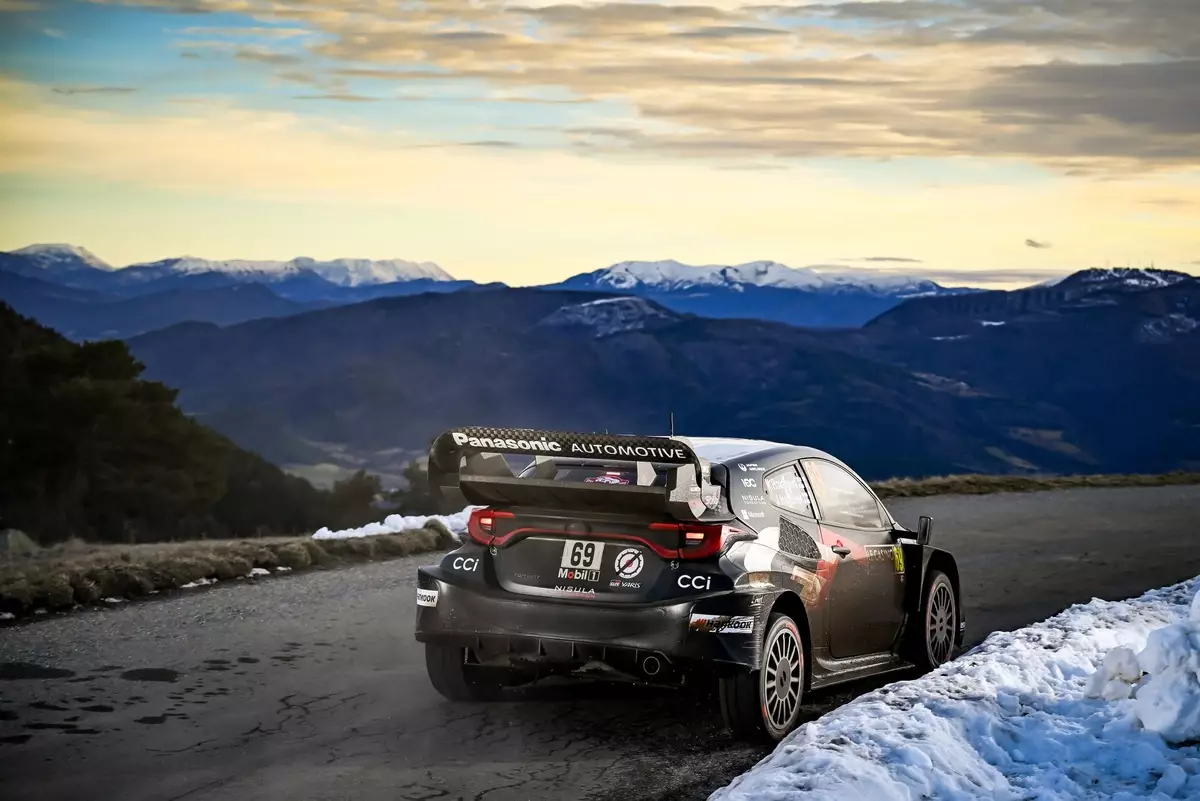As Kalle Rovanpera embarks on a new season in the World Rally Championship (WRC), he finds himself confronting a significant shift in tire technology with the introduction of Hankook control tires. The challenges presented by these new tires not only test the Finnish driver’s mettle but also represent a broader change in competitive dynamics within the sport. The opening rally of the season in Monte Carlo has made it clear: adaptation is paramount if Rovanpera aims to reclaim his previous dominance as a two-time world champion.
Rovanpera’s struggle to align his driving style with the demands of the slick tires was evident during the Monte Carlo event. He acknowledged the necessity for modification, stating that his usual approach may not yield the desired results on the slick tarmac. “I think overall it is pretty clear that maybe the driving style that I normally have doesn’t work with the slick tire,” he commented, signaling a need for introspection and recalibration. This situation illustrates a classic problem in motorsport: how quickly a driver can adapt to evolving equipment and conditions can often dictate their success.
Despite the initial grappling with the tires, Rovanpera showcased resilience by achieving a stage victory under challenging conditions, finishing the day in a respectable fourth position. However, this performance left him 38.5 seconds adrift of rally leader Sebastien Ogier, his Toyota teammate. The need for speed is evident, but achieving it requires more than just a strong car; it demands a fluidity of driving style that can adapt to the tires’ characteristics.
Analyzing Competitive Dynamics
Rovanpera’s predicament is particularly noteworthy within the context of his teammate Sebastien Ogier’s performance. Ogier’s ability to leverage his extensive experience allowed him to emerge as a frontrunner, previously navigating his way through tricky conditions to secure his place at the top of the standings. “Experience is always helping in this moment,” Ogier shared, demonstrating the crucial role veteran expertise plays in rallying. The competition is fierce, and Rovanpera must find his rhythm quickly to stay aligned with Ogier’s pace.
When considering the broader implications of Rovanpera’s current challenges, one must reflect on the persistent nature of learning curves in motorsport. While he previously triumphed in Monte Carlo as a newcomer to the Rally1 car concept, the nuances of adapting to a vastly different tire compound present a different kind of hurdle. The variability of conditions—whether dealing with snow, studs, or slicks—complicates matters further.
Looking ahead, Rovanpera must not only modify his driving technique but also communicate effectively with his team to adjust car setups. “We did some small setup things that were slightly better in the afternoon,” he noted, but he was quick to recognize that more is needed. Curating a strategy that encompasses both vehicle dynamics and driving proficiency is essential for improving future performances.
Assessment of tire performance and adapting to changing conditions must become central to Rovanpera’s approach. Given that Monte Carlo has notoriously unpredictable weather patterns, improving performance requires analysis and adaptability. It is imperative for Rovanpera to fine-tune his understanding of how the Hankook tires react under varying circumstances, leading to better overall pacing.
As Kalle Rovanpera navigates through the early season struggles, his journey serves as a salient reminder that the world of rally racing is fraught with constant change and requirement for evolution. Adapting driving styles and vehicle setups are not merely tactical choices; they are essential for survival in a highly competitive environment. Rovanpera’s potential to reclaim his championship title hinges not only on overcoming the immediate challenges but also on embracing the lessons learned along the way. For fans and competitors alike, this season promises to be a captivating testament to flexibility and mastery in the world of motorsport.


Leave a Reply